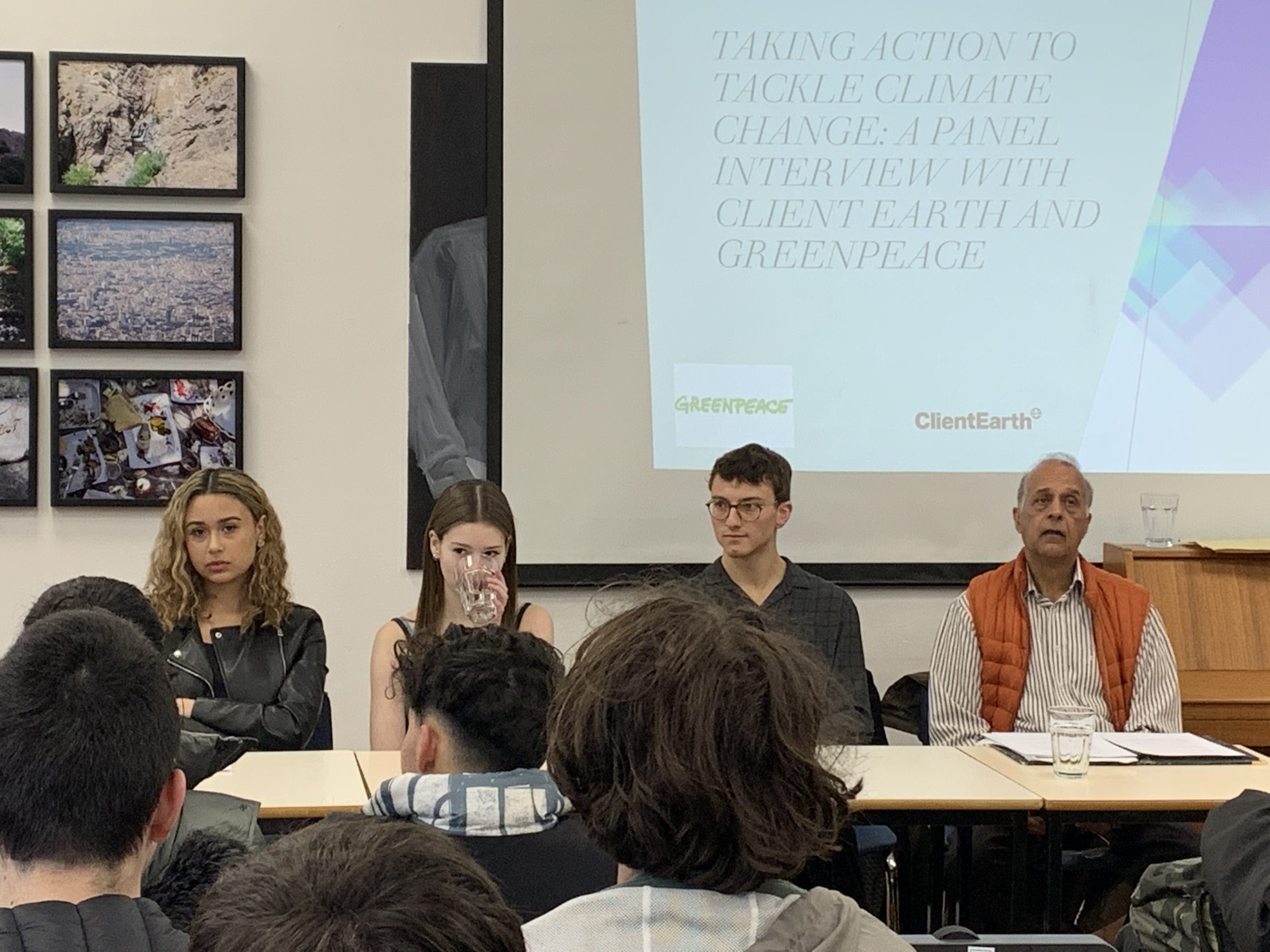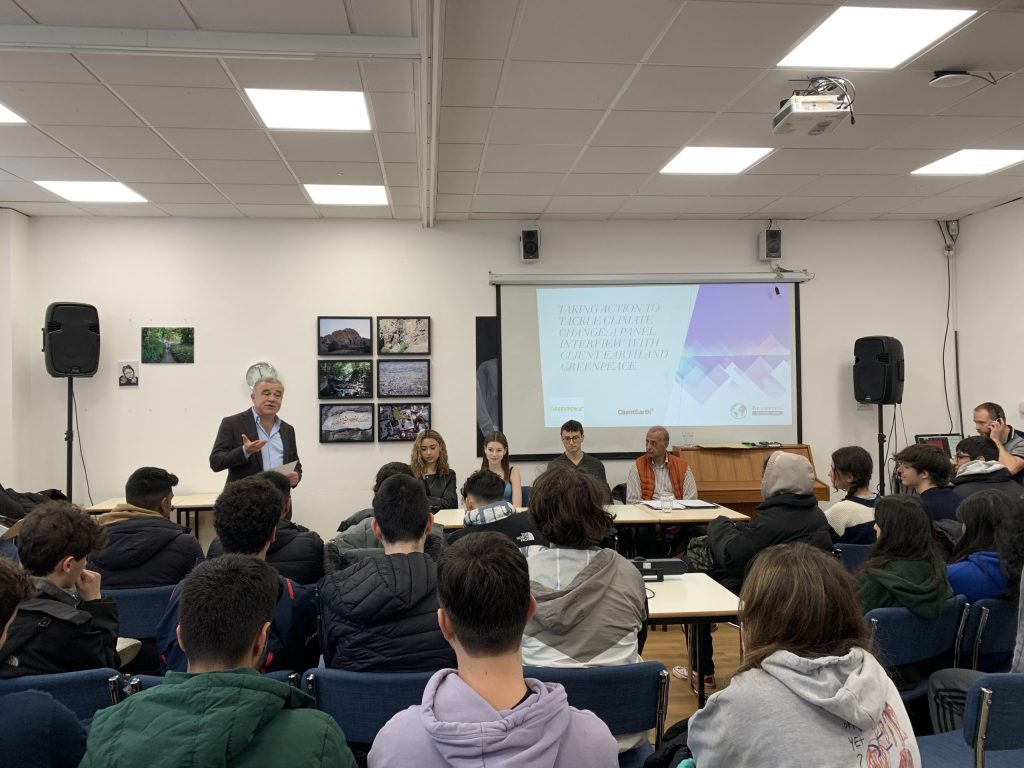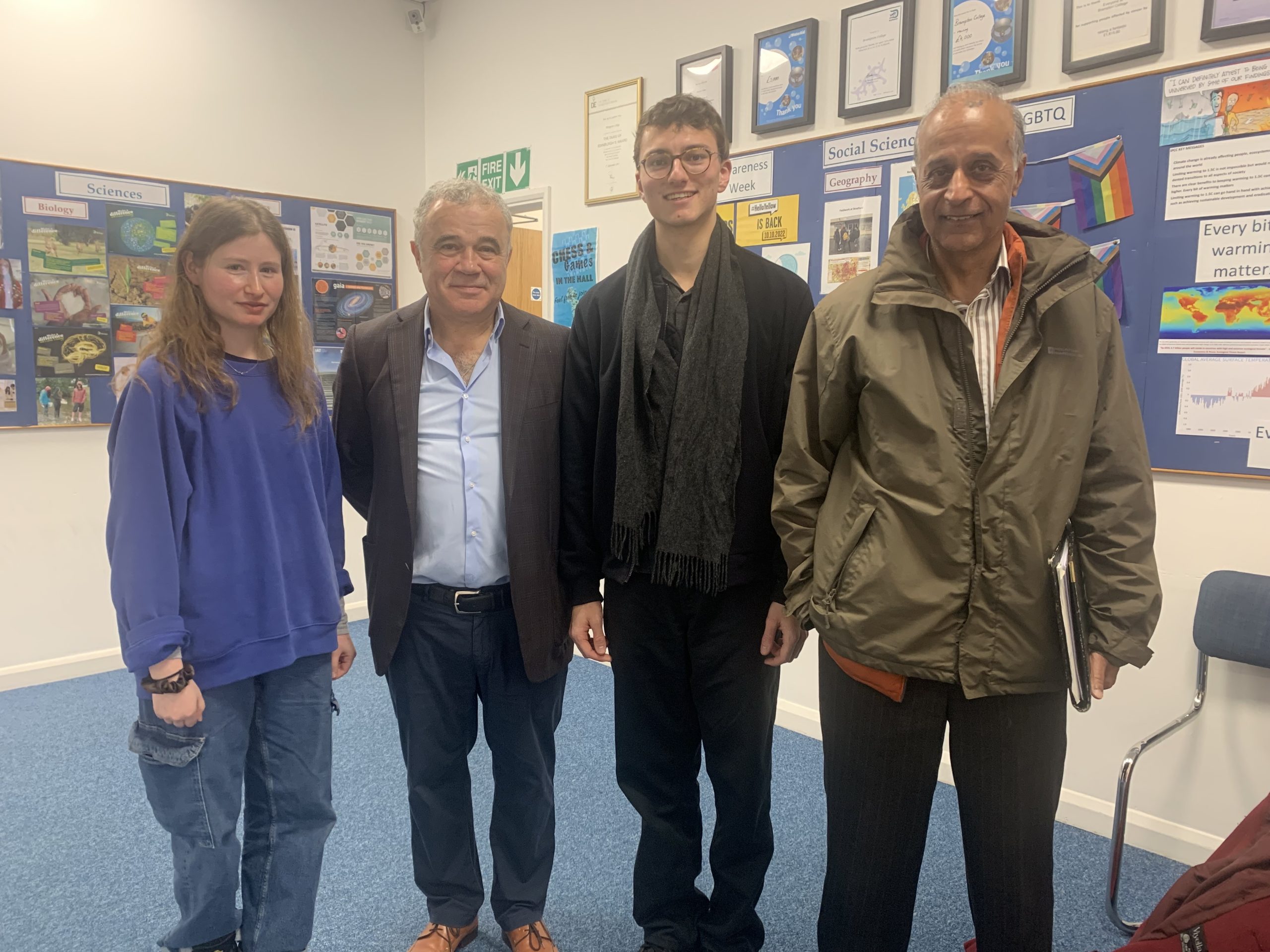Last week Robin and Antonia (AS students) chaired a panel interview with Sebastien Menthon from Client Earth and Jasbir Singh from Greenpeace, two leading environmental charities. They asked an impressive array of questions that were collected from students in a previous assembly (thanks to Adam and Resham and all teachers involved!). The students asked about the effectiveness of civil disobedience, the extent to which globalisation had contributed to climate change, whether extraction is necessary in order to fund a transition to a green economy, and what actions they could take to combat climate change.
At the time that Greenpeace was founded, modern environmentalism was arguably characterised by a split between a ‘lord-of-the-flies’ pessimism of the war generation (William Golding even lived next door to James Lovelock and suggested the Gaia Hypothesis as a name for his theory), and the (sometimes) hippy, pre-Raphaelite-brotherhood ideals of young-adult baby boomers involved in the movement. It was interesting to note how practical and analytical the student’s questions were. Jasbir’s answer to whether tackling climate change would reduce living standards – his stipulation that it undoubtedly would and that there would always be winners and losers – is perhaps representative of a shift towards desperate pragmatism.
The UN Biodiversity Conference, Cop15, which began this week, further reiterates the need to control warming to well below 2C. The threat to 99% of coral reefs if we reach 2C is just one example of ecosystem collapse that worries even the most anthropocentric of thinkers. Greenpeace and Client Earth’s more recent tactics, such as their joint use of the law to hold the UK government to account for failing to implement a net-zero strategy, adds a newly suited line of defence to the usual protest. The argument has moved away from idealistic, philosophical manifestos on how environmentalism could make life better towards pressurising governments and large corporations to ensure things don’t get drastically worse.
Jesse, Environmental Coordinator






